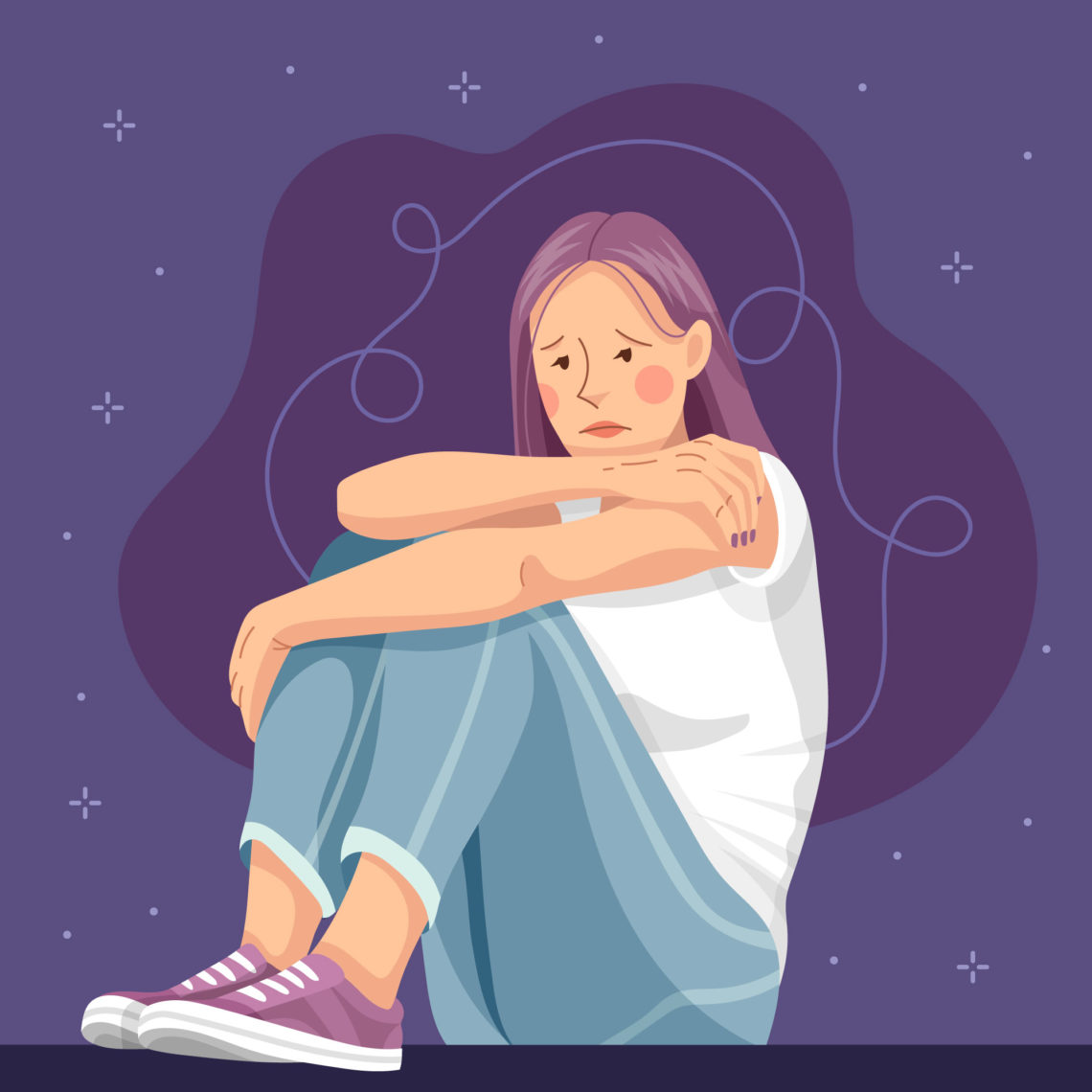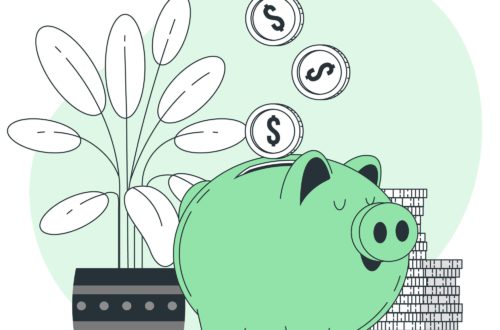
When your mind betrays you: depression rears its ugly head again
I haven’t been silent about my (past) battles with depression, anxiety, and insomnia. All those issues hit me as a teen and came back in my 20s, 30s, and now 40s. I was fortunate not to experience postpartum depression after my two pregnancies, but I’ve known women who have.
Mental illness is rarely a “one-and-done” situation. It’s often a lifelong battle. There’s less of a stigma about mental health than ever before, but it can still be isolating feeling trapped in your own mind—a mind that’s betrayed you when you thought you were okay again.
Triggers
I think everyone has different triggers that can jump-start a depressive episode. Sometimes, there’s a traumatic situation like a breakup, the death of a loved one, or a job loss, and other times it can be the result of going off medication that’s still needed. Sometimes, it’s just altered brain chemistry that makes it feel like everything is wrong all the time.
I had an unexpected job loss two and a half years ago. It was traumatic, and I had a lot of strong feelings about the situation, but I managed to ignore the pain long enough to buckle down and find another job. Fortunately, I have a great support system with my family and friends, and I was still taking medication I’d started before going to therapy in 2017 to deal with depression and anxiety. I had been considering going off the meds right before COVID-19 hit because I thought I was doing so well after completing a therapy stint that I might not need it anymore.
Well, there’s nothing quite like a global pandemic to increase anxiety. I decided at the time to wait and go off the meds when things improved.
Trying to handle it on my own
By the beginning of 2023, I was feeling good about life. We had completed kitchen and bathroom renovations that we’d waited 10 years to be able to afford and the repairs were complete after we suffered a water leak and a minor house fire with major water damage in 2022. My job felt stable, my family was well, and I was plugging along (although slowly) on my 5th novel. I decided in May that I should try going off my anxiety meds to do a trial run without them. I weaned off the medication over six weeks and continued to feel pretty good. I had all the tools I needed from therapy to manage, right? Wrong.
By the end of May, I’d finished the first draft of When Does Life Begin? and was dealing with the emotions from that process since it’s been my most difficult book to write. I took a short break before starting the editing process and enjoyed the summer with my family. We went to the beach, enjoyed our last summer in the above-ground pool (which was leaking and no longer able to be patched), and made several trips to the Subiaco pool.
By the middle of August, I could feel the dark cloud start to creep back in. I was depressed again, and it was difficult to pinpoint what had changed or exactly when the shift had started. I felt like a failure that I couldn’t handle my emotions on my own, despite the perpetual therapist voice in my head reminding me of the difference between helpful and unhelpful thoughts.
Seeking help (again)
I went to my primary doctor in September and got put on a new antidepressant, one that wasn’t known to cause weight gain since I’ve struggled with my weight in recent years. I knew it would take 3-4 weeks to be fully effective, but I didn’t know how terrible I would feel while starting it. It wasn’t something I’d experienced with the previous medication for anxiety and depression. The first couple of weeks were hell, to the point of being what I’ll call “almost suicidal.” I didn’t want to harm myself, but at the same time, I felt like getting hit by a bus would have been a relief. (I hate admitting that, but it’s how I felt.)
I told my doctor I was feeling worse, and she wanted me to stick it out with the meds a little while longer. So I did. I also reached out to the therapist I’d seen before to discover that she had moved out of state and no longer took my insurance. I liked her, but it was partly a relief. She’d “fixed” me once, and I’d gone off and broken myself again, so I was a little embarrassed at the prospect of telling her that I was failing at using the coping tools and behaviors she’d taught me. And maybe I wasn’t over everything I thought I’d gotten past. I needed to find another therapist.
Meanwhile, I started hoping that maybe the meds were helping. But then the insomnia crept in again and I knew the meds were not helping the way they should. Sure, I felt some numbness and a decreased desire to cry, but that also coincided with a lack of motivation to do much of anything. I had to force myself to do everything.
I reached out to a new therapist and got put on the waiting list for counseling. Something had to give. Luckily, the wait was only about two weeks, and I was coping.
The healing process (even if it takes a lifetime)
A new start with a new therapist was what I needed. I filled out the questionnaires and scored “severely depressed” on the scale. I was surprised by that because I thought my depression was moderate. I also scored high on the PTSD (post-traumatic stress disorder) scale, likely from the job loss. I had pushed down all those feelings about having to create a new narrative for my career path, and everything was bubbling to the surface.
Anxiety-wise, I was better than I had been, likely because as the therapist said, “Typically, depression comes from the past invading the present, and anxiety is about the future.” I wasn’t anxious about the future because, at the time, I just didn’t give a damn about it. I was too busy trying not to drown.
You know what else had happened? I was dwelling on other things from the past related to rejection. Rejection, whether it’s from someone you love (or loved) or from a job you love (or loved), hurts in the same way from the same place. It’s that overwhelming feeling of being unwanted or unloved, the fear of always being inadequate, not good enough.
I also switched to a different care provider for my mental health meds. I started weaning off the meds that weren’t working while starting meds that had worked for me in the past.
For the first time in several weeks, I have hope and am starting to feel more like myself. The dark cloud in my mind hasn’t turned into butterflies and rainbows, but it is fading and I can feel the light beginning to shine through it.
Stopping the spiral of an often invisible battle
Mental illnesses can be invisible, kind of like my battle with ulcerative colitis. You can’t always tell by looking at someone that they’re sick or might need help. Sure, there can be some signs and symptoms, but some people mask them pretty well. Some people suffer from smiling depression where they keep their pain and suffering silent and appear happy and okay. Sadly, if someone with severe depression has managed to hide symptoms, the only way other people find out is after the person has attempted or died by suicide. I think of high-profile suicides like Kurt Cobain, Robin Williams, Chris Cornell, Kate Spade, and Chester Bennington. Tragic losses for their families, friends, and those of us who admired them. One untimely death is one too many.
So what can we do? Seek help for ourselves or our loved ones. Keep talking about the importance of mental health. Don’t make others feel bad if they need help or medication to function. And don’t feel bad about yourself if you’re struggling. You’re not alone.
Resources:
National Institute of Mental Health
Thank you for reading,
Brandi Easterling Collins
Here’s my mental health playlist with some songs that have spoken to me.
Cover image by Freepik





2 Comments
Sarah Dale
Thank you for sharing a part of your truth. As a fellow mental health survivor, I want to extend a major virtual hug. I love you girl and I’m so happy I’ve met you. Your light may seem dim, but honestly shines brighter in the places we may least expect it. Here’s to things continuing to clear. Always here for you. ❤️
caniscareyou
Thanks for your support, Sarah! Love you too!